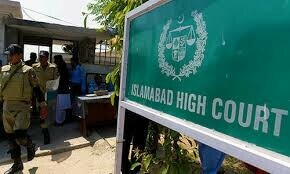ISLAMABAD: Public perspectives focus on rhetoric but at the same time lacked the will or capacity to improve the political system of the country.
This was pointed out by Dr Aasim Sajjad Akhtar, associate professor at Quaid-i-Azam University (QAU), at an event held in the capital.
Mid-career research professionals, along with experts, gathered to examine national policy issues and propose action plans. The Centre for Strategic and Contemporary Research conducted the second edition of the Young Researchers’ Convention (YRC) on the National Security Ecosystem of Pakistan 2023.
The convention brought together young minds from Pakistan’s academic, research and policy circles to generate research agendas and propose action plans on national policy issues. The latest edition was centered around themes like the great power competition, climate change, technology and politics of identity.
During inaugural speech of the closed-door convention, the executive director of CSCR, Anas Abdullah said that the country was still in need of an intellectual compass, which motivated the centre to conceive the idea of a researchers’ convention. Highlighting the title’s significance, one of the speakers Dr Adnan Rafiq, who is member of governance, innovation and reforms at the Planning Commission of Pakistan, iterated that inclusivity was a perennial question in Pakistan’s policy-making system. Having a critical mass of pragmatic people to offer ideas was significant, he said.
Fellow at the Transformations of the Human (TotH) at the Berggruen Institute Dr Hussain Nadim underscored the need to give some definitional clarity to the theme ‘Curating Future Technologies’ Landscape’.
He noted that ecosystems should be allowed to develop organically. For technology, the problem of integration was pointed out as a major roadblock for the state, he said.
Elaborating on ‘Safeguarding National Interest in Turbulent Times’, Dr Salma Malik, assistant professor at the QAU, said new skills must be developed to initiate start-ups.
The fourth theme was titled ‘Guaranteeing Climate Consciousness’ in which the underlying narrative on climate change was assessed vis-a-vis on-ground action.
Over 40 panellists including representatives from think tanks, non-governmental organisations (NGOs), universities, and international organisations participated in the event.
Participants were sorted into four theme-based research groups, led by one moderator each. During the main round-table session, the four working committees took part in four separate simultaneous deliberations on their assigned research questions.
Published in Dawn, February 8th, 2023











































Dear visitor, the comments section is undergoing an overhaul and will return soon.